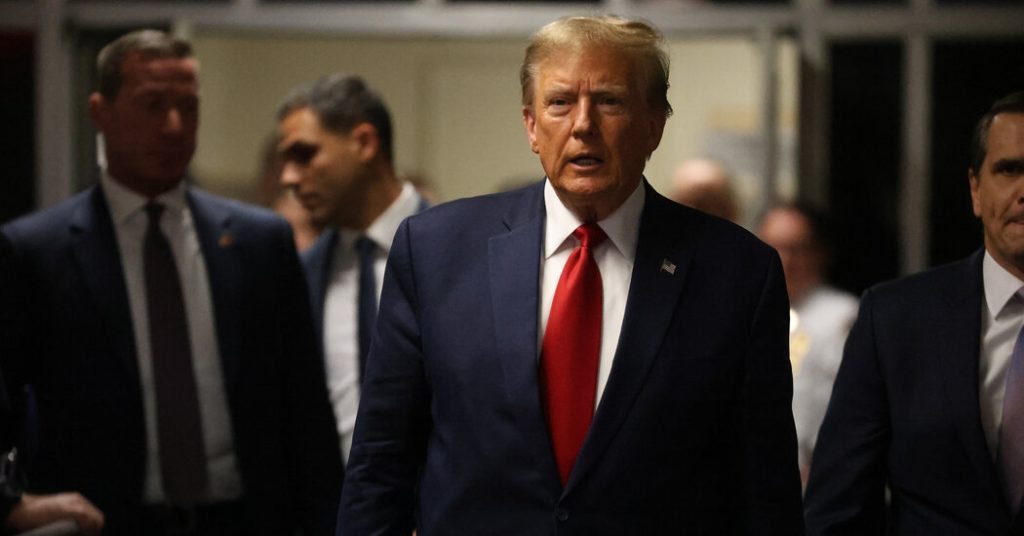The New York judge presiding over one of Donald J. Trump’s criminal trials has imposed a gag order on the former president, prohibiting him from attacking witnesses, prosecutors, and jurors. This move is an effort to curb Trump’s inflammatory rhetoric about his legal opponents. The case was brought by the Manhattan district attorney, Alvin L. Bragg, who accuses Trump of covering up a potential sex scandal during and after his 2016 campaign. The trial is set to begin on April 15, marking the first criminal prosecution of a former American president.
Under the gag order, Trump is forbidden from making statements about witnesses, prosecutors, court staff, and their relatives if it is intended to interfere with their work on the case. Any comments about jurors are also banned. The only exception to the gag order allows Trump to attack Mr. Bragg, who has received death threats in recent months. This order closely follows another upheld gag order in a federal appeals court case involving Trump, highlighting his history of attacking legal adversaries.
Mr. Trump’s inflammatory comments about witnesses and prosecutors have prompted the imposition of the gag order by the judge. This decision reflects a highly charged atmosphere around Trump’s trials, which have been marked by threats and intimidation against legal officials. Trump’s lawyers argued against the gag order, claiming it would violate his First Amendment rights to free speech. However, the judge’s decision to impose the order represents a necessary step to maintain the integrity and fairness of the legal proceedings.
In addition to the gag order, the judge has also issued a warning to Trump’s lawyers to behave professionally or risk being held in contempt of court. Trump’s legal team has been reminded to walk the line between zealous advocacy and willful disregard of the court’s orders. This warning underscores the seriousness of the case and the need for all parties involved to conduct themselves appropriately in court. The judge’s recent order also protects prospective jurors in the case by keeping their identities and addresses confidential.
The Manhattan criminal case against Trump stems from a hush-money payment made by his former fixer, Michael D. Cohen, to a porn star during the 2016 campaign. Trump aided in falsifying business records related to the payment, further concealing the scandal from voters. The case could result in Trump facing up to four years in prison if convicted. Despite initial reluctance to impose a gag order, the judge’s decision to restrict Trump’s inflammatory comments reflects a growing concern over the need to protect the integrity of the legal process.
Overall, the gag order imposed on Trump in his criminal trial in New York represents a crucial step in curbing his inflammatory rhetoric and protecting the integrity of the legal proceedings. The judge’s decision to restrict Trump’s comments about witnesses, prosecutors, and jurors reflects a commitment to ensuring a fair trial and upholding the rule of law. The case is one of several legal challenges facing Trump, and the outcome of this trial could have significant implications for his political future. The judge’s warning to Trump’s lawyers to act professionally underscores the seriousness of the case and the need for all parties involved to conduct themselves appropriately in court.


